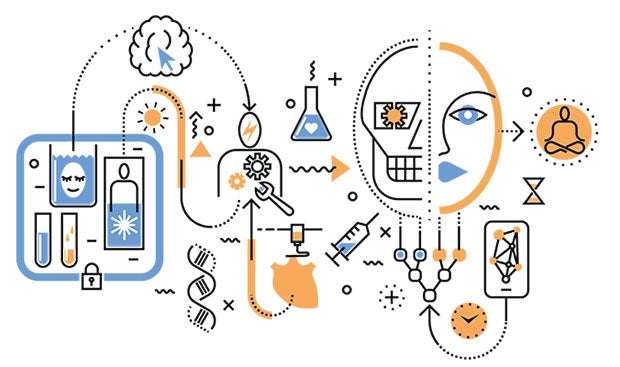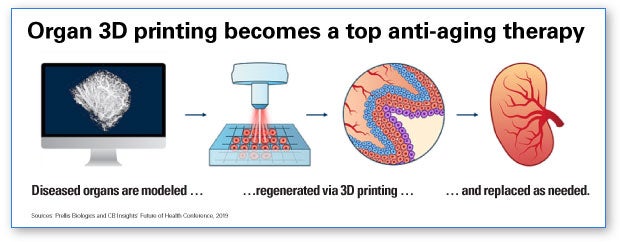

Forecast Calls for Extension of Healthy Years

During the recent CB Insights Future of Health Conference, Natan Reddy, a senior intelligence analyst, asked a simple question with anything but a simple answer. What would the world look like if people began living to age 150?
The idea was not to introduce science fiction scenarios to see how long life can be extended, but to explore the rapidly expanding field of increasing the human health span — the time that one is healthy in life. Even though life expectancies continue to increase, a large gap remains between the average health span (age 63) and the average life span (age 79), according to the Organisation for Economic Cooperation and Development data.
In recent years, researchers, drug developers, venture capitalists and others have been pouring huge sums of money into better understanding this issue. They believe that as health care providers, consumers, payers and others focus greater attention on wellness, and as progress continues on addressing the leading causes of death such as heart disease and cancer, we will see the human health span expand significantly.
Reddy says many advancing technologies — from gene editing to telehealth to organ transplantation — that address care at all stages of life will contribute to gains in the health span.
Among some of the anticipated future advances, Reddy forecasts that:
- Universal genetic screening will become the standard as physicians and parents seek to provide the most accurate and timely care to babies with congenital diseases. Similarly, prenatal gene editing will become a more common form of disease risk intervention despite the controversies surrounding it.
- Smartphones and users’ screen habits will be studied more closely to monitor behavioral health and to help spot suicide risks among teens. Behavioral biomarkers will be used to identify red flags among patients with various behavioral health conditions.
- Smart bathrooms that use sensors and other devices to track consumers’ vital signs over time will help detect underlying conditions sooner, before serious diseases surface.
- 3D organ printing and organ transplantation among seniors will increase as solutions develop in this area. LyGenesis Inc., a Pittsburgh-based biotech startup, recently announced it will begin clinical trials in 2020 for patients with end-stage liver disease. The company’s technology uses an individual’s lymph nodes as bioreactors to regrow functioning organs ectopically within his or her own body.

These and other trends will have major implications for all with a stake in health care, including:
- Therapeutics and diagnostic firms: As the market expands for wellness and digital therapeutics, drugmakers will need to diversify their offerings in these categories.
- Distributors and retailers: Drug deliveries increasingly will go direct to consumers as people age and receive treatment at home, forcing retailers and distributors to invest in next-generation delivery solutions.
- Providers: As demand for inpatient care continues to decline amid lower rates of chronic and fatal diseases, organizations will need to shift to telehealth and hospital-at-home preventive capabilities.
- Payers: Aging demographics will place a massive strain on publicly funded health care, leading private insurers to see more demand for products aimed at the elderly.
- Health IT vendors: With patients focused on living longer, they will demand more insights from their medical data. Vendors must develop new software tools that allow patients to own their data.



